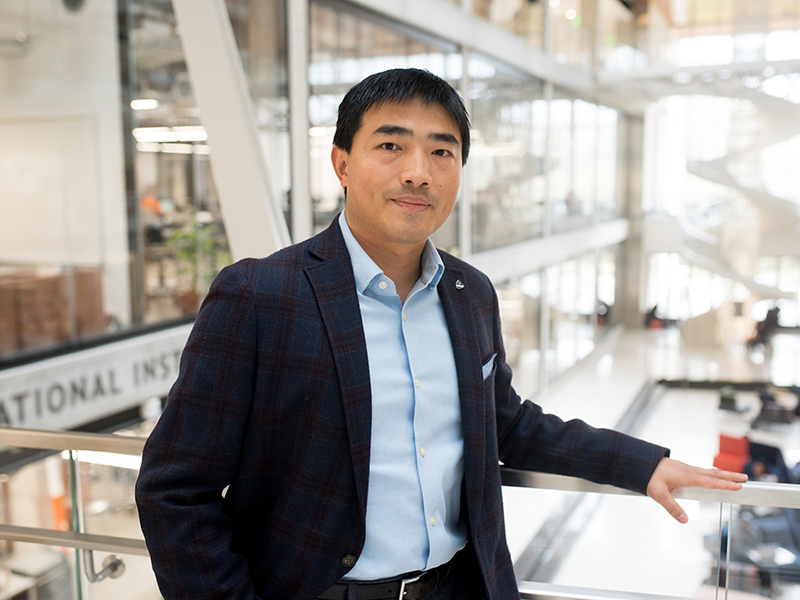UT professor receives Norman Hackerman Award in Chemical Research
February 1, 2022
UT professor Guihua Yu said he first developed his love for science and technology as a small child when his father worked in a sugar-making factory. Now, he is the recipient of a chemical research award for his innovative work with nanomaterial science.
“When I was back in China when I was very young, just probably four or five years old, I was brought in to see his daily work,” Yu said. “At the time, I was actually very interested in these big machines and making these materials.”
On Jan. 19, Yu, an associate professor of advanced material science and engineering, received the Norman Hackerman Award in Chemical Research for his work in nanomaterial science and renewable technology, such as the hydrogel tablets developed to purify infected water.
“This is a tremendous award to recognize what my research group actually has done in terms of research impact,” Yu said. “It’s also really an … award for many of my outstanding students.”
The Norman Hackerman Award, created by The Welch Foundation, honors inventive researchers within the first 10 years of their career fields. The recipients, Yu and Ryan Hibbs, an associate professor of neuroscience and biophysics at UT Southwestern Medical Center, receive a personal award of $100,000 along with the title. Hibbs said he believes that awards such as the Hackerman Award encouraged him to be innovative and take on riskier projects because they hadn’t been done before.
“The ongoing research funding from The Welch Foundation is continuing to allow us to develop new projects,” Hibbs said. “Some of those involve looking at just different classes of receptor proteins that are on the surface of cells to more broadly understand communication in the brain.”
Welch Foundation president Adam Kuspa said he hopes the award energizes and validates scientists in their research.
“Our hopes for both our award programs — the Welch Award and the Hackerman Award — is to simply highlight for the public the fantastic work that’s going on in the field of chemical research in the state of Texas … and how it benefits society,” Kuspa said.
Yu said he hopes that in the future his work can inspire his children as he was inspired by his father’s work at the sugar-making factory.
“What I hope is that we can use my research, and then use (the) materials we develop, (to) make a device and then actually make these products that I can show my kids and go, ‘This is daddy’s work,’” Yu said.












